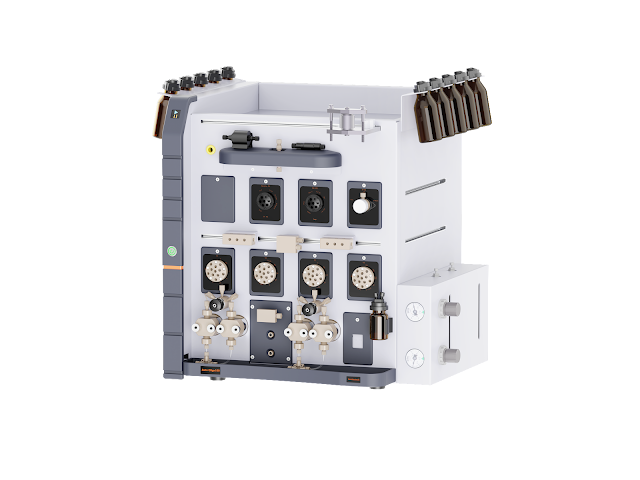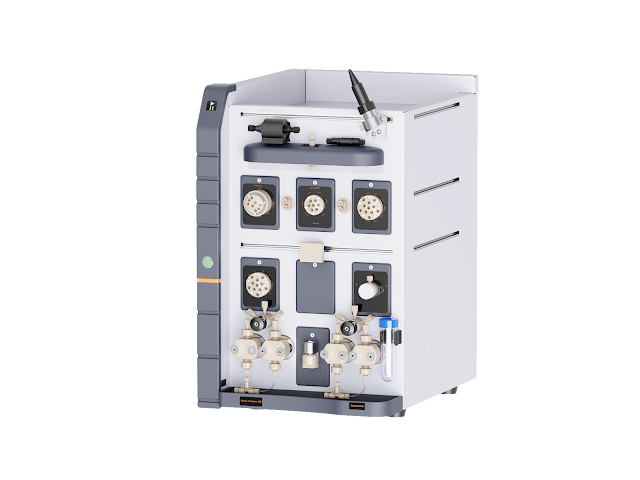The Pioneering Journey of Oligonucleotide Synthesis and DNA Synthesizers
Oligonucleotide synthesis is a vital process in molecular biology and genetic engineering, encompassing the artificial creation of short sequences of nucleotides. These sequences, known as oligonucleotides, are essential for various applications, including PCR, DNA sequencing, and probes in hybridization techniques. This technology has revolutionized the field of genetics by enabling precise synthesis and modifications of DNA sequences. The technique involves the step-by-step addition of nucleotides, following a predefined sequence, under controlled chemical conditions. The precision and efficiency of oligonucleotide synthesis have made it an indispensable tool in biomedical research, diagnostics, and therapeutic development.
The Core Technology:
The heart of synthetic oligonucleotides lies in the Synthesizer of DNA, a sophisticated instrument that automates the synthetic process. A Synthesizer of DNA sequentially adds nucleotide units to a growing chain, adhering to a user-defined sequence. This process, known as solid-phase synthesis, is highly efficient and can generate oligonucleotides of varying lengths and compositions. The ability to create custom DNA sequences with high fidelity has significant implications in research, particularly in understanding genetic functions and designing genetic modifications. DNA Synthesizers have become increasingly user-friendly, with advanced software controls, enhancing their accessibility and utility in various scientific settings.

Applications and Advancements:
The applications of synthetic oligonucleotides are vast and continually expanding. From basic research in genetics to applied fields like drug discovery and personalized medicine, the impact of this technology is profound. In diagnostics, oligonucleotides are specific probes for detecting genetic mutations and infectious agents. In therapeutics, they are used in gene therapy and as antisense oligonucleotides to modulate gene expression. The advancements in DNA Synthesizer technology have been pivotal in enabling these applications. Modern synthesizers offer more incredible speed, higher throughput, and more precise control over the synthesis process, broadening potential applications' scope.
Challenges and Future Directions:
Despite its numerous advantages, synthetic oligonucleotides face challenges, particularly scalability and cost-effectiveness. The synthesis of long oligonucleotides with high purity remains complex and expensive. Moreover, the increasing demand for modified oligonucleotides, crucial for specific applications, adds complexity. Future advancements in Synthesizer of DNA technology are expected to address these challenges. Innovations may include more efficient synthesis methods, automated purification systems, and enhanced software for better sequence design and error correction. These improvements will enhance the quality of synthesized oligonucleotides and make the technology more accessible and affordable for a broader range of users.
Conclusion:
Synthetic oligonucleotides and DNA Synthesizers have become cornerstones in modern biological research and medical applications. As the technology continues to evolve, its impact and reach are expected to grow significantly. Inscinstech.com.cn/en, an innovative high-tech enterprise, has been at the forefront of this evolution. With a strong focus on biological separation technology, numerous patents, and advanced software copyrights, the company is well-positioned to contribute to advancing oligonucleotide synthesis technology. Their presence in strategic locations like Suzhou, China, and Los Angeles, USA, underscores their commitment to providing high-quality equipment and services globally, thereby supporting the scientific community in reducing operational costs and creating value in genetic engineering and beyond.
.jpg)

Comments
Post a Comment